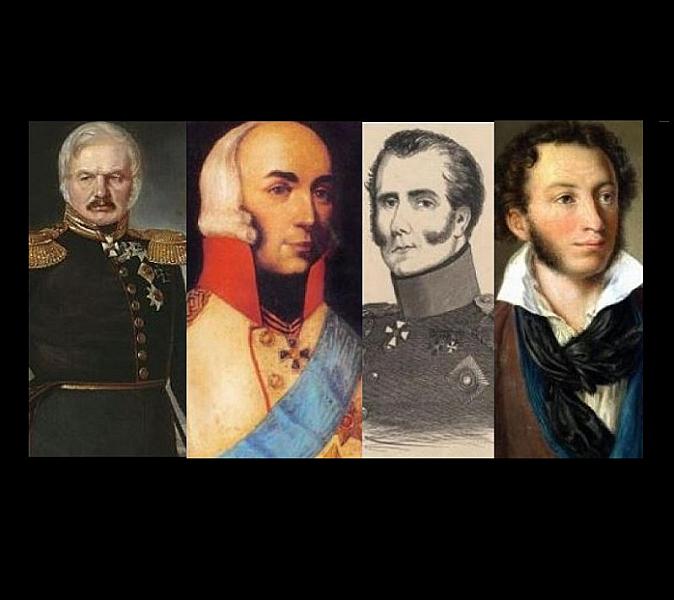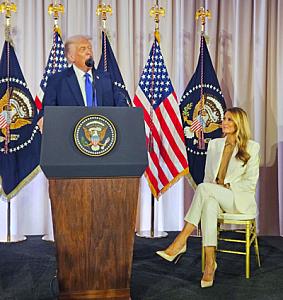I did not know Alexander Sergeyevich Pushkin was such an imperialist-propagandist. I have just found out. The man was like the Solovyovs, Zatulins, Simonyans, and Kiselyovs of his time.
True, he has good poems, rhymed fairy tales, and epics, but he also has poems that should not be exposed to the public. Yesterday, one of these was shared by our Facebook friend Vasif Sadıqlı.
I read it and saw what? Nothing. Such a great poet rolled down to the bottom of the valley like a snowball torn from the summit of Elbrus or Kazbek.
Would a poet write poems about the extermination of mountain tribes unwilling to submit to foreigners, about genocidal policies against them, and praise military criminals?
Yes, flattering Pushkin did exactly that. I will present the original of that poem a little below. Those who know Russian well should read it and see for themselves.
Let me also say that Pushkin wrote this poem 204 years ago. The original version of the 9-stanza poem is as follows:
...На негодующий Кавказ
Подъялся наш орёл двуглавый;
Когда на Тереке седом
Впервые грянул битвы гром
И грохот русских барабанов,
И в сече, с дерзостным челом,
Явился пылкий Цицианов;
Тебя я воспою, герой,
О Котляревский, бич Кавказа!
Куда ни мчался ты грозой -
Твой ход, как чёрная зараза,
Губил, ничтожил племена...
Ты днесь покинул саблю мести,
Тебя не радует война;
Скучая миром, в язвах чести,
Вкушаешь праздный ты покой
И тишину домашних долов...
Но се - Восток подъемлет вой...
Поникни снежною главой,
Смирись, Кавказ: идёт Ермолов!
И смолкнул ярый крик войны,
Всё русскому мечу подвластно.
Кавказа гордые сыны,
Сражались, гибли вы ужасно;
Но не спасла вас наша кровь,
Ни очарованные брони,
Ни горы, ни лихие кони,
Ни дикой вольности любовь!
Подобно племени Батыя,
Изменит прадедам Кавказ,
Забудет алчной брани глас,
Оставит стрелы боевые.
К ущельям, где гнездились вы,
Подъедет путник без боязни,
И возвестят о вашей казни
Преданья тёмные молвы.
**
Of course, not all who read this text are Russian speakers or know Russian well. Especially nowadays young people know English well, but either barely handle Russian or do not learn it at all. That is why, just as our great poet Samed Vurgun once translated and presented A. Pushkin’s poem "Eugene Onegin" saying, "I did not regret spending the painstaking sweat of my brow, nor the two years of my life, translating the masterpiece of Russian poetry into Vagif’s sweet tongue," I too did not regret spending two hours of my rest yesterday translating Russia’s beggar masterpiece of poetry into Vagif Samedoglu’s language.
The translation of that poem I entitled “Surrender, O Caucasus, Yermolov is coming!” is as follows in my version:
Our two-headed eagle
Set off angrily toward the Caucasus;
Then the sound of war thundered
For the first time on the Terek shore.
The Russian drums sounded again,
In battle fierce, the face terrible,
The wild Sisianov entered the scene;
I praise you, hero,
Caucasus’s scourge, Kotlyarevskiy,
Wherever you rushed like a storm—
Your advance was like a black plague,
Destroying and annihilating tribes...
You no longer enjoy wars,
You have left the sword of revenge.
Bored with peace, with wounds of honor,
You savor the pleasure of tranquility.
The peaceful silence of familiar valleys...
But look, the East raises a howl...
Bow your snowy head, mountains,
Submit, O Caucasus, Yermolov is coming!
The fierce roar of war has died,
Everything submits to the Russian sword.
Proud and brave sons of the Caucasus,
You fought and died terribly;
But our blood did not save you,
Nor the enchanted armor,
Neither the mountains nor the bold horses,
Nor the wild passion for freedom.
Just like the tribe of Batu,
The Caucasus will betray its ancestors,
Forget the greedy call to battle,
And leave the fighting arrows behind.
To the ravines where you nested,
The traveler will come without fear,
And dark legends and rumors
Will announce your execution.
This is the end of the translated version of the poem. Now you tell me, does such militaristic verse suit a poet of such stature? The poet praises General Alexey Yermolov (1777-1861), Pyotr Kotlyarevski (1782-1851), and General Pavel Sisianov (1754-1806), lavishing them with praise. These persons subjected the Caucasus to invasion, captured our ancestors as prisoners. Whether Ohanyan or Sisianov, it makes no difference for us. You know how that “wild Sisianov” ended, so I won’t write about it. Likewise, whether Zori Balayan or Pushkin, what difference does it make?
This is the first time I do not regret that such a talented poet was killed young in a duel. Maybe if he had lived, he would have written even more reactionary poems.
We also dedicated poems to the “painful deaths of the proud sons of the Caucasus in battle,” “calling the Caucasus to surrender to Yermolov,” gave a district (Bilesuvar) the name of this Nazi during the Soviet era, erected many statues of him, and memorized his poems. But in fact, we needed to know exactly this poem of his.
Now if we dismantle the statue of this propagandist poet, Moscow will say Nazism has emerged in Azerbaijan. They will never say that Alexander Sergeyevich did this Nazism 204 years ago.
P.S. Those who have criticisms about the quality of the translation, kindly send a better version to my address; I will publish it. Previously, I have translated 5-6 novels, but I can say translating a 9-stanza poem is nine times harder than translating a 9-page story.
P.P.S. In the picture (from left to right): Yermolov, Sisianov, Kotlyarevski, and Pushkin



